Keeping pace with challenges in pig production - Part 1
It is expected that animal protein demand will further increase in the near future. Why? Because the global population and its prosperity are steadily rising. Did you know that pork is the most consumed meat worldwide, closely followed by poultry?…
Last year, pork comprised 36% of the total meat consumption, whereas poultry meat accounted for 33%, beef 24% and goats/sheep 5% (according to the United Nations Food and Agriculture Organization, 2019). Though this growing demand is challenged - on the one hand by consumer’s awareness for safe food and on the other hand by sustainable and efficient swine production.
At the same time...
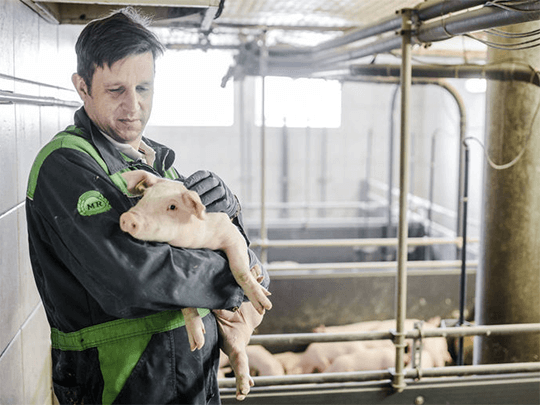
...production costs should be kept as low as possible whilst controlling the high risk of developing drug resistant bacteria for animals and humans due to the use of in feed antibiotics, either as growth promoters (AGP) or for disease treatment (therapeutic).
Over the last decades, many feed additives have been developed and evaluated, within which phytogenic (plant derived) substances have attracted much attention.
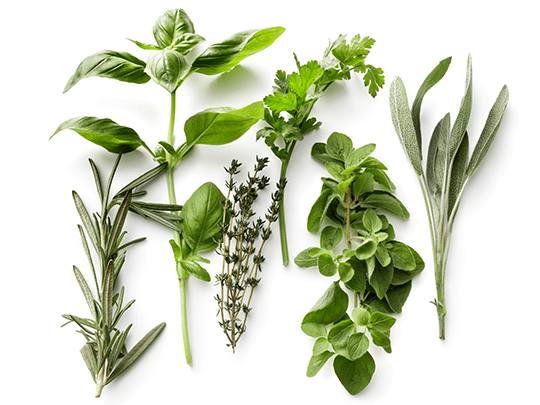
Plants have been used for many centuries in human culinary and medicine. For example as flavor enhancer, preservatives or for their healing properties.
Phytogenic feed additives (PFAs), also referred to as “Phytogenics”, contain various natural active substances, such as essential oils, pungent and bitter substances, tannins and saponins that are solely derived from herbs, spices and other plants. As such, PFAs are promising ingredients in a natural strategy to face today´s challenges in livestock production. At the same time, consumers recognize and accept them as safe alternative to widely used, therapeutic or prophylactic, medicines applied in animal production.
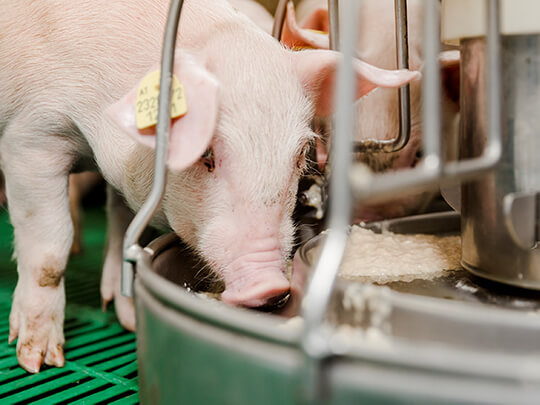
Phytogenics, or in other words, the mixtures of leading and secondary active components in combination with mixtures of more than one plant-based ingredient have proven to be effective in animal production.
In addition to improving feed intake, research results have shown that specific phytogenics can also contribute to reducing emissions and increasing performance – thus being sustainable alternatives to in-feed antibiotic growth promoter.
Palatability and feed intake
Feed intake is a common problem, especially for piglets post-weaning. The abrupt separation of the piglet from their mother and the change from a liquid/animal based diet (milk) to a solid/plant origin feed during weaning often results in a sudden drop of feed intake and consequently health challenges can occur, followed by impaired growth. Various essential oils, aromatics herbs and spices have been used successfully to enhance the sensorial stimulation of piglet diets. They are used to improve feed palatability in order to increase feed intake and thus, overcome the negative consequences while increasing piglet’s performance.
Due its phytogenic compounds, Fresta® F enhances feed intake in piglets during weaning, supporting and improving growth performance (Average data of 15 trials with Fresta® F on weaned piglets).
Increased enzymatic activity in the intestinal tract
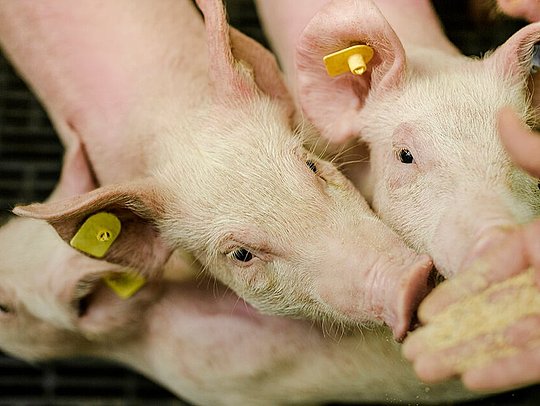
Pancreatic digestive enzymes, protease, lipase and amylase are essential for breaking down feed components. Their secretion rate and activity are critical factors for the better and more complete digestion and nutrient absorption. Selected phytogenics have shown beneficial effects on production and activity of pancreatic enzymes, bile secretion and brush border enzymes in the digestive tract.
Thus, improved digestion of the feed results in higher nutritional value and enhanced animal performance (mainly FCR).
Oxidation is a natural process in cells - the final products are free radicals.
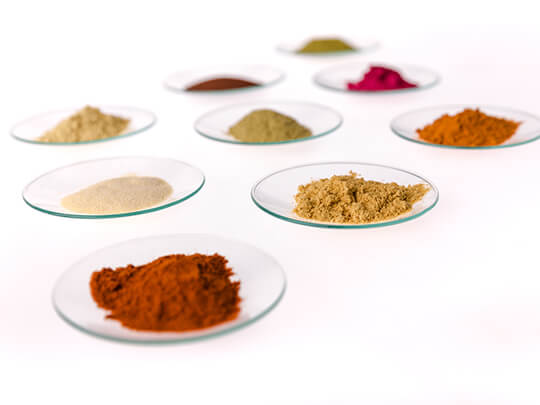
During pig’s lifetime, various stressful conditions like weaning, feed change, poor ventilation, overstocking, heat stress and transport may increase oxidation processes and thus, the production of free radicals. Overproduction and accumulation of free radicals can cause protein and lipid oxidation as well as DNA cell damage. Many aromatic plants and/or their essential oils have been studied for their antioxidant activity.
Those plants contain active components, called “phenolic rings”, which have the ability to catch the free radicals. In addition, many non-phenolic components have antioxidant properties by supporting the “internal” antioxidant defense mechanism. They enhance gene expression for the antioxidant enzyme production.
Emission reduction of noxious gases
Animal production is responsible for a large amount of noxious gas production, especially ammonia. Specific plant components have shown to reduce considerably ammonia production from swine units. This benefit is not only for the good of the environment, but also improves air quality in the barns, which again improves animal welfare and working conditions for the employees.
Studies have shown that the combination of active ingredients in Aromex® Pro improves feed conversion ratio and average daily gain while reducing ammonia emissions, thus supporting profitability of pig fattening (Average data of 12 trials with Aromex® Pro in grower-finisher pigs on performance parameters and average data of 5 trials with Aromex® Pro in grower-finisher pigs on ammonia reduction).
Be it for reasons of flavouring, preserving, or healing – plants have always played an important role in humans
Over the last years, plant derived additives have successfully found their way also into animal nutrition – and justifiably so!
Phytogenic feed additives have shown many beneficial effects in swine nutrition, such as improved palatability and feed intake, enhanced feed conversion as well as ammonia emission reduction. Relating to the proven beneficial characteristics, phytogenic feed additives are foreseen to have the potential to become a new generation of substances, respectively additives for innovative pig nutrition and welfare and thus, being able to contribute to a profitable production - perhaps soon a crucial tool for keeping pace with upcoming trends and challenges in pig production.

Sandra Chamusco
Global Technical Manager Swine at Delacon Sandra Chamusco has a degree in Animal Science at the University of Évora in Portugal and has been working in swine nutrition for more than 20 years. She was a feed formulator and customer consultant, technical responsible and Director of Operations at the Portuguese subsidiary of the French group CCPA. After that she was Director of Swine Nutrition Department at T.N.A. (Portugal). At Delacon,Sandra is responsible for product development and product support, and for the customer technical services for the complete range of Delacon’s swine products on a global level.











Great article.
How can I get this as a document.